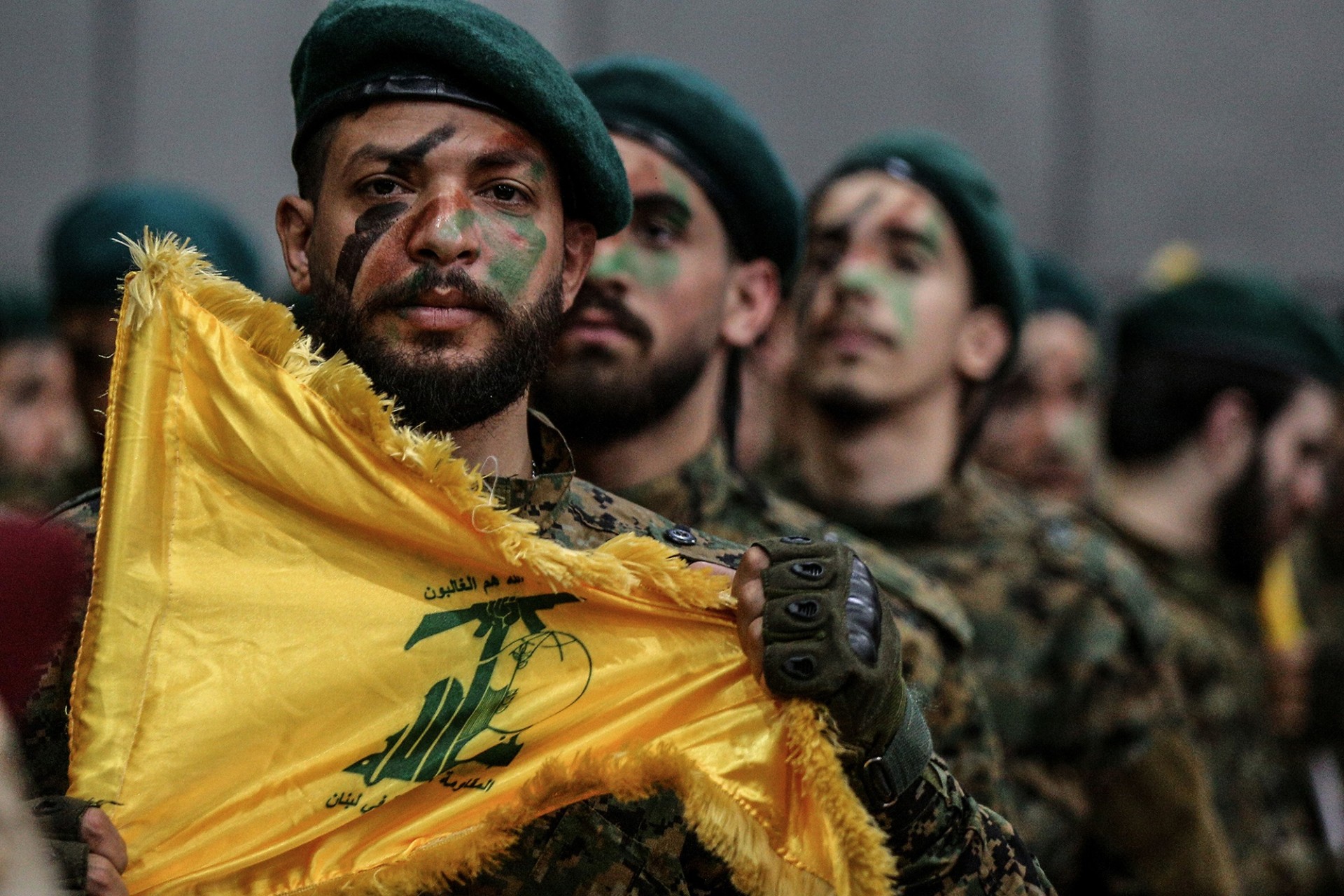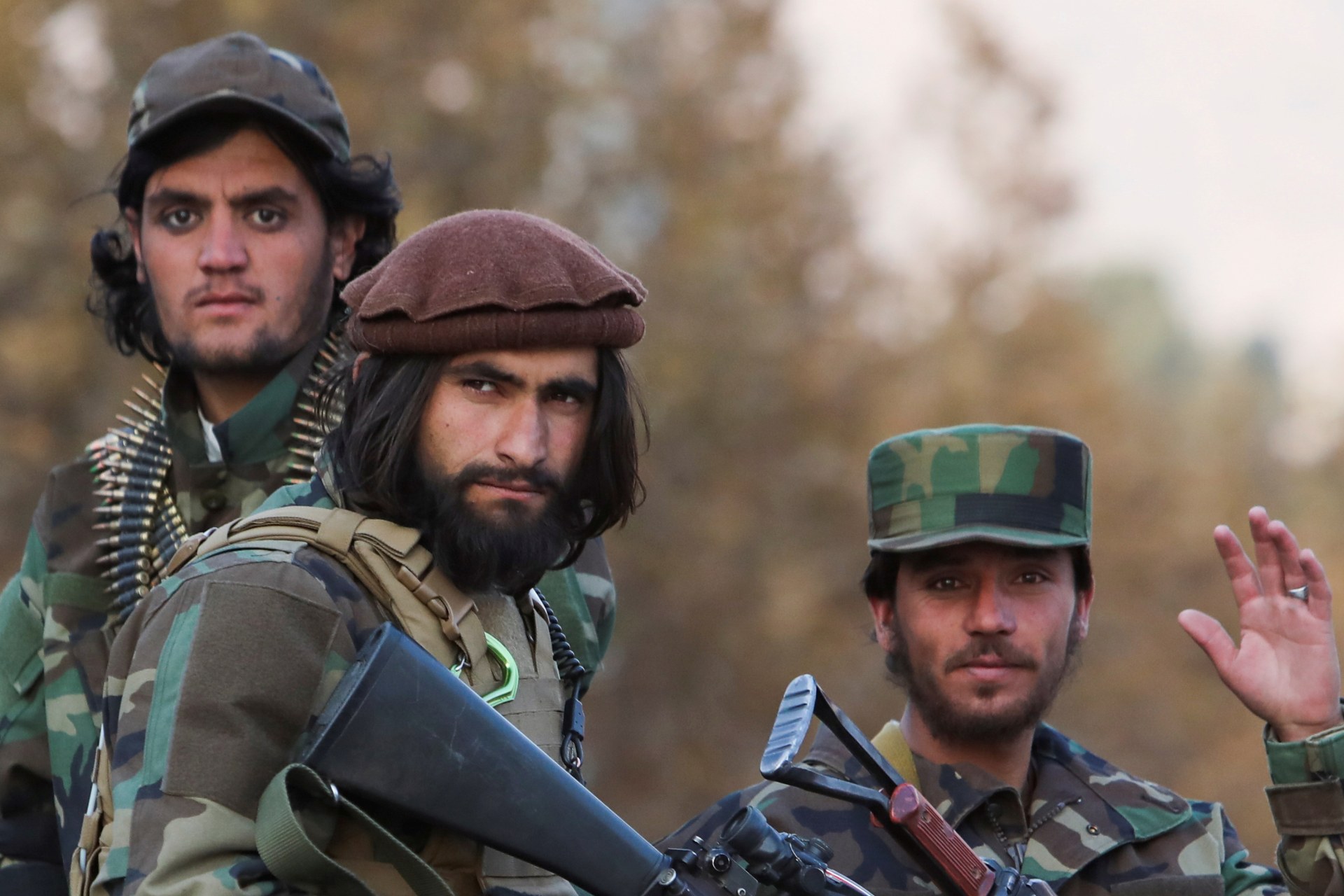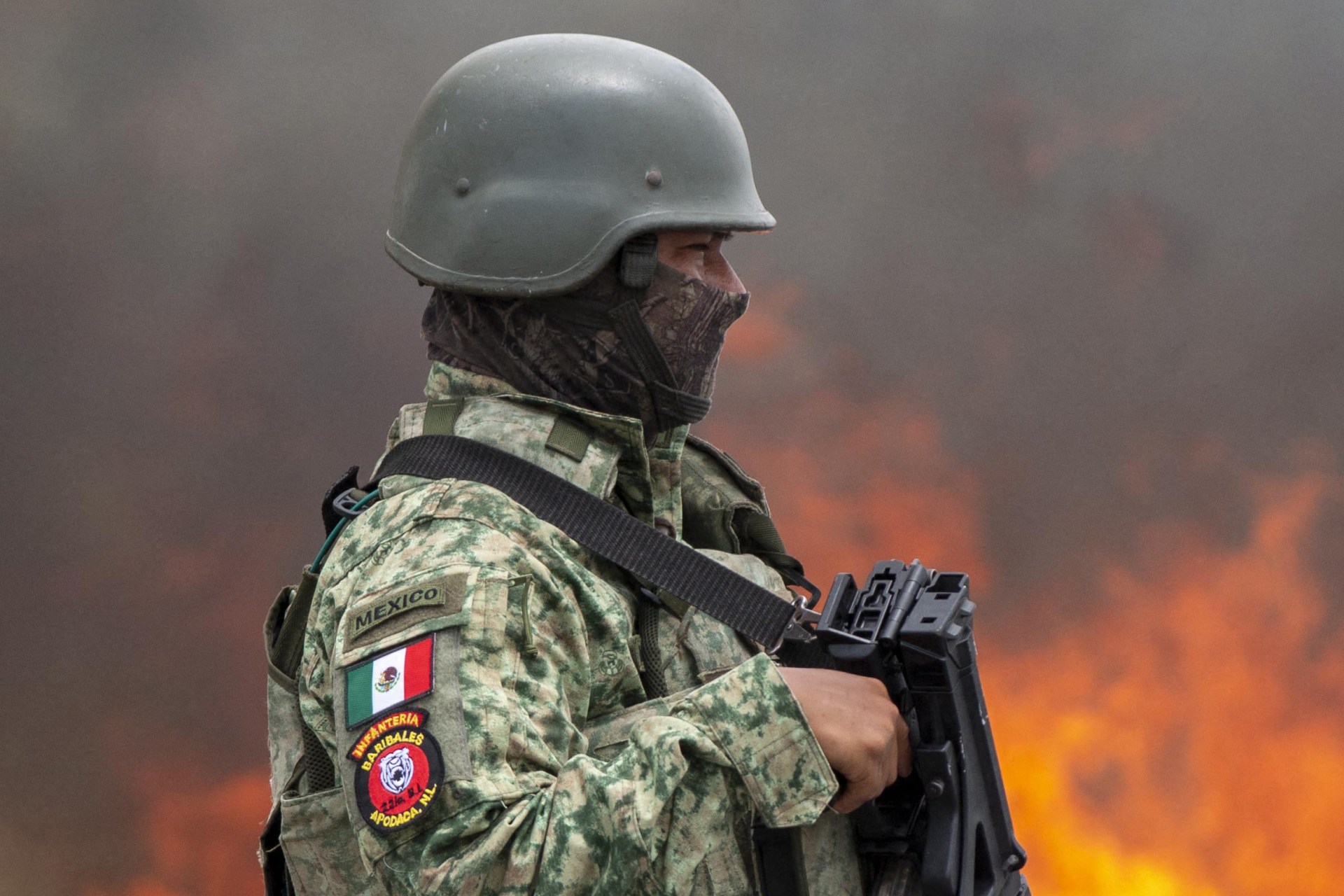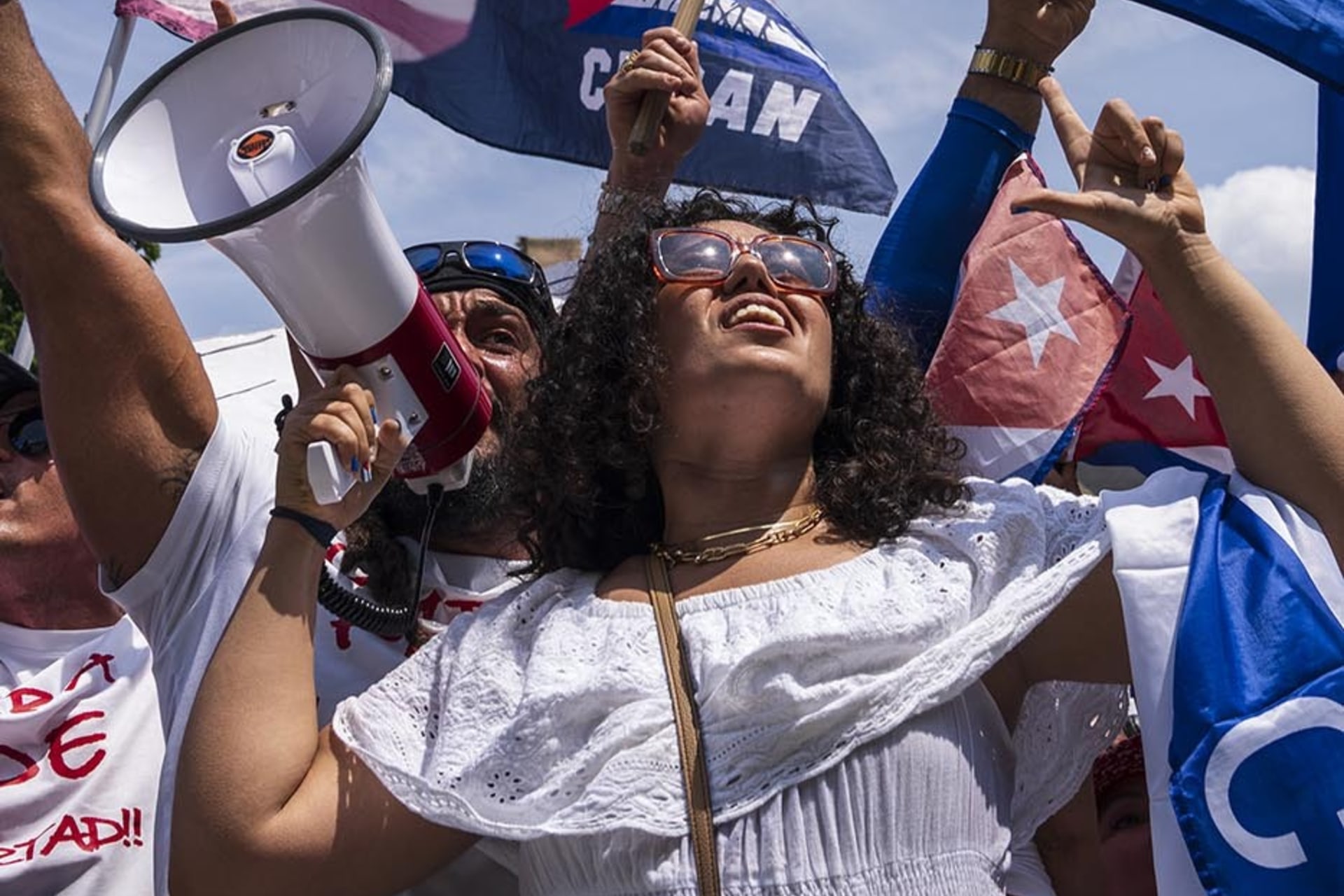IRAQ: The Prison System
Published
This publication is now archived.
Who runs the prison system in Iraq?
The coalition authorities. According to an official memorandum issued June 8, 2003, by L. Paul Bremer III, the U.S. administrator in Iraq, “the administrator [Bremer] will remain in full control of the Iraqi prison system.” In practice, the task of running the prisons was delegated to the U.S. military and, in particular, the 800th Military Police (MP) Brigade, an Army Reserve unit. Questions about inmates’ treatment and interrogation have been sparked by revelations of serious misconduct by U.S. soldiers at Abu Ghraib, Iraq’s largest prison.
When were the reports of mistreatment made public?
The U.S. military announced an investigation into alleged abuses at the prison in January. But the matter did not become the center of public attention--and a major embarrassment for the Bush administration--until photos of prisoner abuse were broadcast on CBS’s “60 Minutes II” on April 29 and published in the May 10 issue of The New Yorker. The photos, which documented abuses that took place between October and December 2003, were subsequently broadcast and published worldwide.
How have authorities responded?
In February, Army Lieutenant General Ricardo Sanchez, the top U.S. commander in Iraq, suspended 17 soldiers from their duties on suspicion of involvement in the abuse incidents and ordered criminal and administrative investigations. An internal Armyreport completed in February by Major General Antonio M. Taguba found that severe mismanagement by officers and a lack of training contributed to a pattern of misconduct at Abu Ghraib and other Iraqi prisons. Taguba’s report concluded, “Several U.S. Army soldiers have committed egregious acts and grave breaches of international law at Abu Ghraib and Camp Bucca, Iraq,” and senior officers failed in their obligations to prevent the abuse. Six additional investigations into the allegations of abuse are ongoing.
In response to worldwide criticism of the prisoners’ mistreatment, President Bush apologizedon May 6. Defense Secretary Donald Rumsfeld followed suit May 7 at a hearing before the Senate Armed Services Committee.
Who has been punished?
Janis Karpinski, an Army Reserve brigadier general who commanded the 3,400 men and women in the 800th MP Brigade, was reprimanded and removed from her command. Seven MPs are expected to face courts-martial— the trial date for the first, Specialist Jeremy Sivits, has been set for May 19. In addition, seven supervisors— including Karpinski— have been disciplined with official reprimands or admonishments. President Bush called the abuses ’abhorrent“ and has pledged to punish those involved. Investigations into other prison abuses in Iraq continue. On May 3, U.S. military officials said that 20 other detainee deaths and assaults remain under criminal investigation in Iraq and Afghanistan. A total of 35 cases in those two countries have been examined for possible misconduct by U.S. troops since December 2002, officials said.
Who now commands the prison system in Iraq?
On March 22, Army Major General Geoffrey D. Miller was named deputy commander for detainee operations in Iraq. He will report directly to Sanchez and oversee all detention-related operations, including military intelligence and MP units. Previously he was the commander of the Guantanamo Bay detention center, which holds suspected terrorists captured in Afghanistan and elsewhere.
Who is in charge of interrogating prisoners?
Interrogations are run by military intelligence units in cooperation with Defense Intelligence Agency (DIA) and Central Intelligence Agency (CIA) personnel. In Abu Ghraib, there were also 27 civilian interrogators who were contractors working for military intelligence, Air Force Lieutenant General Lance L. Smith, the deputy Central Command (known as CENTCOM) commander, said at the May 7 Senate hearing. According to the Taguba report, MPs were also involved in “setting the conditions for successful interrogations” in accordance with a recommendation made by General Miller after he visited Iraq in September 2003.
How many prisons are there in Iraq?
The system is made up of 16 prisons and incarceration centers, four of which hold prisoners accused of being part of the anti-occupation insurgency, according to The Washington Post. But there are dozens of other holding cells on U.S. bases, many once used by former president Saddam Hussein’s government, where Iraqis spend their first days in captivity. These are under the command of the local military commanders. About half of all detainees are at Abu Ghraib. Other main prisons are located at the southern port city of Umm Qasr and at Baghdad International Airport, where “high-value” detainees are held.
How many Iraqi prisoners are being held by U.S. forces?
Rumsfeld said in his congressional testimony May 7 that there are 11,150 detainees. Prior to that date, the Defense Department had not revealed an exact number. A March 2, 2004, New York Times article had said that “more than 10,000 men and boys” were in custody, ranging in age from 11 to 75. The story cited a detainee database maintained by the U.S. military. Human Rights Watch said in February that there were between 9,000 and 12,800 detainees. Women have also been detained. However, Bremer said April 23 that “less than 10 women” remained in custody.
How many prisoners have been released?
According to Rumsfeld’s testimony, 31,850. Some 2,500 detainees have been freed since February 2004, after the military created a “special board to expedite the review of all detainees,” Bremer said April 23. Such a board is mandated by the 1949 Geneva Conventions, which regulate the treatment of prisoners of war and civilians in occupied territory.
What was the chain of command at Abu Ghraib prison?
MPs were in charge of the day-to-day operation of the facilities, and military intelligence officers ran interrogations. “The MPs were responsible for the detention operation,” Karpinski said in a telephone interview with The Washington Post May 1. “They got them their meals, they got them showers, medical attention if they needed it.” But Karpinski and other MPs say that in a special cellblock of the prison called Tier 1-A, MPs took orders from military intelligence. The Taguba report said that a military intelligence brigade colonel was made the commander of the prison in November 2003— on General Miller’s recommendation— blurring the traditional separation of command between MPs and military intelligence. The report faulted the prison’s “ambiguous command relationship” and called it “not doctrinally sound.”
What other units were involved in interrogations there?
Taguba’s investigation said that in addition to the military police, members of three intelligence units were involved in abuses at Abu Ghraib. They are: the 325th Military Intelligence Battalion, the 205th Military Intelligence Brigade (http://www.205mi.wiesbaden.army.mil/), and the Joint Interrogation and Debriefing Center (JIDC), which was staffed by civilian contractors and military intelligence experts drawn from all branches of the U.S. military.
The 205th Military Intelligence Brigade had primary responsibility for interrogating Iraqi prisoners, but other agencies were also involved. The New York Times reported that Major General Keith Dayton of the DIA had primary responsibility for the interrogation of Iraqi prisoners designated as “high-value targets.” CIA employees would likely have participated in certain interrogations, according to intelligence experts. A CIA official told The New York Times that the agency “was involved in the interrogation of no more than two dozen individuals at Abu Ghraib between September and December 2003.”
How were private contractors involved?
They were employed at Abu Ghraib as translators and interrogators, and two of them are subjects of the abuse investigation. One worked for CACI International Inc., an Arlington, Va.-based security firm that supplied interrogators to assist military intelligence officers. The second worked for Titan Corp., based in San Diego, which employed translators throughout Iraq. Contractors were also hired as analysts and support staff for the JIDC, according to press reports. The increasingly prominent roles played by civilian contractors in Iraq have stirred criticism from some military experts who say that, compared to regular troops, private contractors are held to lower standards of accountability. But international lawyers say military commanders are ultimately responsible for contractors’ behavior. There are 15,000 to 20,000 civilian military contractors in Iraq working at jobs once performed by soldiers.
Is it common practice for private contractors to interrogate prisoners?
No. “This is the first war in history where the United States has outsourced interrogations,” says Peter W. Singer, a national security fellow at the Brookings Institution and author of “Corporate Warriors: The Rise of the Privatized Military Industry.” “We heard rumors that they may have been involved in Afghanistan and at Guantanamo, but they have not been confirmed.” Contractors have served as translators, however, at Guantanamo, including one employee of the Titan Corp., Ahmed F. Mehalba, who U.S. authorities arrested for allegedly lying about removing classified information from the camp.
Why were contractors being used?
Some experts say the increased use of contractors is an attempt to compensate for the U.S. shortage of interrogators that became evident after 9/11. “The CIA was not prepared for [the attacks on Afghanistan] in October 2001, nor is it or the Army prepared for Iraq,” says Milton Bearden, a retired CIA employee who worked for 30 years in the agency’s Directorate of Operations. But there are also political reasons for the decision, Singer says. “If you use contractors, it doesn’t count on a formal budget line [for war operations]; you don’t have to call up as many reservists ... and you don’t have to count contractor casualties among the military dead.”
How much training do officers get in running prisons?
Of the 38,000 trained military police in the Army, only about 970 have had specific training in running prisons, The Washington Post reported. General Karpinski had never run a prison system, according to The New Yorker. The Taguba report found “there is abundant evidence in the statements of numerous witnesses that soldiers throughout the 800th MP Brigade were not proficient” in basic skills needed to operate a prison. But the report did not excuse the soldiers accused of abuses because they lacked formal prison guard training.
Are all soldiers trained in the laws of war?
The Taguba report found that “very little instruction or training was provided to MP personnel on the applicable rules of the Geneva Convention[s].” It also found that few, if any, copies of the Geneva Conventions were made available to MPs or detainees. But experts say basic training in how to treat prisoners of war is given to every soldier. “There’s a lot of guidance on that. And if you have any questions, you can always talk to the ICRC [International Committee of the Red Cross],” says retired Army Major General William Nash, the director of the Center for Preventive Action at the Council on Foreign Relations. “There is no excuse--this is an outrage to anyone who is a professional,” Bearden says.
What rights do Iraqi prisoners have?
Prisoners in Iraq fall into three legal categories: prisoners of war, security detainees, and criminal detainees. Somewhat differing rules established by the Geneva Conventions apply to the treatment of each, but there are some basic guarantees that apply to all, says James Ross, the senior legal adviser at Human Rights Watch. The rules bar violence, physical or mental torture, corporal punishment, or outrages upon personal dignity, especially humiliating and degrading treatment. These rules have been affirmed by the Coalition Provisional Authority (CPA) in Iraq and by the U.S. Defense Department.
What has the Defense Department said on the subject?
On June 25, 2003, in a response to congressional questions about the treatment of prisoners in the war on terrorism, the administration pledged that the United States would not torture terrorism suspects or treat them cruelly in an attempt to extract information. “All interrogations, wherever they may occur,” must be conducted without the use of cruel and inhumane tactics, Defense Department General Counsel William J. Haynes II wrote to Congress. Further, rules signed by Bremer last June guarantee humane treatment to all Iraqi detainees, including clean and decent sanitary installations, drinking water whenever the detainee needs it, and a ban on corporal punishment and “all cruel, inhuman, or degrading punishments.” The Red Cross is also to be granted access to prisoners. Rumsfeld has condemned the recent reported abuses as “totally unacceptable and un-American” and lawmakers have begun public hearings on how they were permitted to occur.
How often have these rules been violated in Iraq?
It’s unclear, but allegations are mounting that ill-treatment of detainees was not restricted to Abu Ghraib. A confidential ICRC report submitted to the Bush administration in February said that abuse of prisoners in custody of U.S. military intelligence was widespread and in some cases was “tantamount to torture,” according to a copy of the report obtained by The Wall Street Journal. Among the alleged abuses: prisoners were beaten with hard objects, forced to walk around naked and subject to guards’ mockery, and left exposed to the sun for prolonged periods while temperatures exceeded 122 degrees Fahrenheit. “High-value detainees” were kept in solitary confinement devoid of sunlight for nearly 23 hours a day over a period of months in “a serious violation of the third and fourth Geneva Convention[s],” the report said. More than 30 criminal investigations into misconduct by American captors in Iraq and Afghanistan have been conducted in the last 16 months, General George W. Casey Jr., the Army’s second highest ranking general, said May 4. A number of other detainee-abuse cases in Iraq have already resulted in disciplinary actions, including:t
- Eight Marine reservists were charged in the death of an Iraqi prisoner in October 2003.
- Three military police soldiers were discharged for abusing Iraqi prisoners in a southern Iraqi camp, Camp Bucca, in January 2004.
Colophon
Staff Writers
- Sharon Otterman





